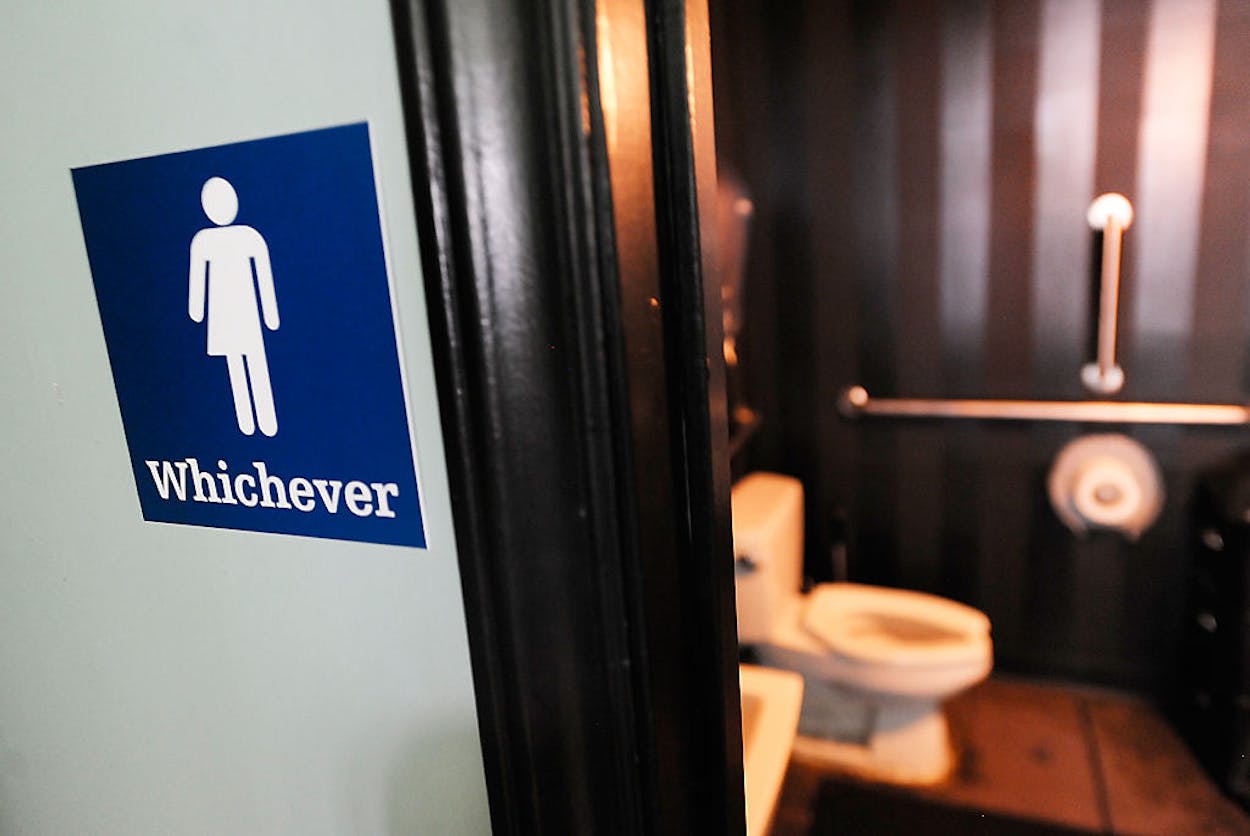By the end of the legislative session, Lieutenant Governor Dan Patrick—once determined to pass bathroom legislation similar to North Carolina’s—was willing to settle for a bill that only applied to public schools and required students to use bathrooms and showers with the gender designated on their birth certificate. But a new federal lawsuit out of the Seventh Circuit Court of Appeals in Wisconsin sends a powerful message that such legislation may ultimately be declared a violation of federal law.
A case in the Wisconsin court is not binding in Texas, and the issue may be moot before the case reaches the U.S. Supreme Court—the student involved is graduating from high school. But a unanimous ruling by a three-judge panel in the appeals court will be studied carefully by other courts when deciding cases.
At issue was the use of a boy’s bathroom by a transgender student named Ash. The school district wanted to deny him access to the bathroom after discovering that he had been using it for six months. “What the record demonstrates here is that the School District’s privacy argument is based upon sheer conjecture and abstraction,” the judges wrote in the ruling. “For nearly six month, Ash used the boy’s bathroom while at school and school sponsored events without incident or complaint from another student. In fact, it was only when a teacher witnessed Ash washing his hands in the restroom that his bathroom usage once more became an issue in the School District’s eyes.”
“This policy does nothing to protect the privacy rights of each individual student vis-à-vis students who share similar anatomy and it ignores the practical reality of how Ash, as a transgender boy, uses the bathroom: by entering a stall and closing the door,” the judges continued in the decision. The court also noted that it has received briefs from school administrators in 21 states representing 1.4 million students urging the court to rule in the transgender student’s favor.
The school district argued that an unfavorable ruling under Title IX would force school districts across the nation to consider whether they want to put their federal funding at risk with a policy that limits a transgender student’s bathroom access to the sex assigned on their birth certificate. That aligned with Patrick’s main justification for pushing his bathroom legislation, which was based on an executive order from former President Obama telling school districts that they risked losing federal funds under Title IX if they did not treat transgender students equally. That order has since been overturned by President Trump.
By holding up legislation to renew five state agencies, Patrick tried to force Governor Greg Abbott to call a special session. Patrick has said he wants bathroom legislation added to the call. Given what Patrick supported at the end of the regular session, he may be asking state lawmakers to adopt a policy that is destined to be overturned.






